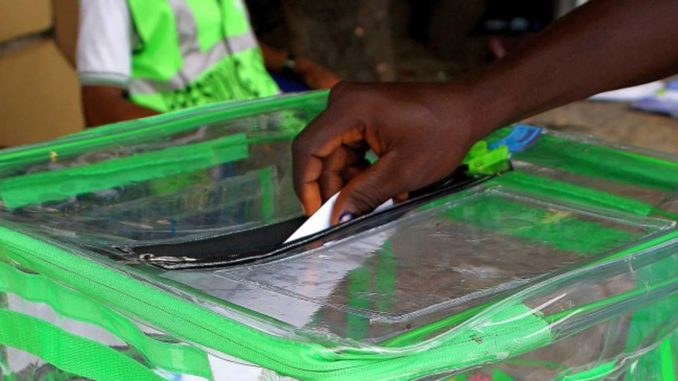
The big states, like Lagos, Kano, and Rivers, get some attention, though. And deservedly so. But because state politics tend to be in the firm grip of so-called ‘godfathers’, most people do not even bother to make the effort. I reiterate the need for conducting the presidential, parliamentary and gubernatorial polls on the same day.
Will people go out to vote on Saturday, March 9? Maybe that is not the right question. Would more or less people vote in the gubernatorial elections than they did a week ago in the presidential and parliamentary elections?
A lot of Nigerians care a great deal about the presidential and parliamentary polls. For those of states and local governments? Not so much. So, considering how turnout was quite low for the former, there are concerns that the potential disinterest might be worse for the latter. Still, it is best to be optimistic.
The big states, like Lagos, Kano, and Rivers, get some attention, though. And deservedly so. But because state politics tend to be in the firm grip of so-called ‘godfathers’, most people do not even bother to make the effort. I reiterate the need for conducting the presidential, parliamentary and gubernatorial polls on the same day.
The States I am watching closely are Lagos, Ogun, and Imo.
Kano would have been part of my watchlist. But after the poor showing of the Peoples Democratic Party (PDP) in the State during the presidential poll, despite its aplomb beforehand, I am not so sure there is a contest there.
The PDP secured 391,593 votes in Kano State during the presidential election, while the APC garnered 1,464,768 votes. So, the incumbent, Abdullahi Ganduje of the All Progressives Congress (APC), would probably secure a second-term in office.
The Lagos gubernatorial poll is one to watch. In the presidential election, the two leading parties, the ruling APC and the main opposition PDP garnered about the same votes. The APC secured 580,825 votes, while the PDP got 448,015 votes. Clearly, the underdog PDP has a fighting chance.
Ogun is perhaps the most interesting one. The outgoing governor, Ibikunle Amosun, of the ruling APC, who has already secured a senatorship, is supporting Adekunle Akinlade of the Allied Peoples Movement (APM).
True, Mr. Akinlade and his supporters were forced to move to the APM after allegedly losing out to the powers that be in the APC. But as party men, it was ordinarily expected that Mr. Amosun and his protégé would lick their wounds and toe the party line thereafter. Mr. Amosun would have none of it and has not hidden the fact that his support is with the APM candidate.
And there is ego at stake as well. Should Amosun prevail in Ogun State, it might be the beginning of serious divisions within the Yoruba political household currently under the leadership of Bola Ahmed Tinubu. Amosun’s close relationship with President Muhammadu Buhari also means Mr. Tinubu has to exercise tremendous restraint.
Incidentally, there seems to be popular support for Mr. Amosun’s choice. On the face of it, at least. But considering how turnout at rallies have been poor indicators of success at the polls, proof would be in whether Akinlade’s percieved lead translates into the majority of votes on polling day.
Should the Akinlade-Amosun alliance prevail, however, the APC would still need to figure out a way to punish Mr. Amosun for his ‘anti-party’ activities on the one hand, having already suspended him, while on the other hand remaining well-positioned to benefit from his political fortunes.
Another state I am watching closely is Imo, where outgoing Governor Rochas Okorocha has also been suspended by the APC. Mr. Okorocha has also secured a senatorship. And just like Ogun’s Amosun, he is supporting Uche Nwosu of the Action Alliance (AA), a candidate from another party, to replace him as governor.
What the APC does after the results are released is up to it. But it clearly cannot afford to lose these states. And it must do its utmost to keep the two senators within the fold. But should the party also tolerate indiscipline? Certainly not.
Still, most would recall how similar infighting within the APC four years ago literally created an opposition bloc within the party, thus making it difficult for Mr. Buhari to govern properly. The same mistake should not be made again.
Rafiq Raji, a writer and researcher, is based in Lagos, Nigeria. Twitter: @DrRafiqRaji
END

Be the first to comment